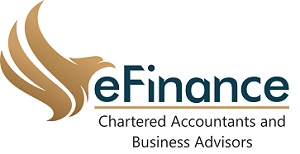Tax preparation is crucial for a company’s financial management and accounting Businesses must implement efficient techniques to reduce their tax bills and maximize their financial success as the tax laws and economic landscape change. In this post, we’ll look at a number of tax planning techniques and process of accounting in London Ontario, and how businesses can use them to improve their overall financial situation.
Comprehending London, Ontario’s Tax Environment
It is essential to have a complete understanding of London Ontario’s tax status prior to putting any specific strategy into action. Among the taxes that are applicable to companies working in this area are the federal and provincial income taxes, the Goods and Services Tax (GST), and the Ontario Employer Health Tax (EHT). Additional tax incentives and credits, such as the Scientific Research and Experimental Development (SR&ED) tax credit, may be available to companies.
The varied economic sectors of London, Ontario, such as industry, healthcare, and technology, are well-known. Businesses’ tax consequences differ greatly depending on their size, structure, and sector. Therefore, each company must have a customized strategy for tax preparation in order to maximize its financial results.
Strategies for Effective Tax Planning
Selecting the Appropriate Business Structure
One of the most important decisions that impact a company’s tax liability is its legal structure. Operating as a corporation, limited liability company (LLC), partnership, or sole proprietorship can have significant tax ramifications for the business. In Ontario, many businesses view corporations as a favourable alternative since they pay lower taxes than individuals. However, while choosing a business structure, the owner’s long-term goals, transferability, and liability protection should all be considered.
Utilize Tax Credits and Incentive Programs:
London, Ontario, provides a range of tax advantages and credits to companies who carry out particular operations. One such example is the SR&ED tax credit, which offers financial rewards to businesses that conduct research and development. Businesses can drastically lower their total tax burden by spotting and seizing these possibilities.
Put Pay vs. Dividend Mix into Practice:
Determining the ideal ratio of owner salaries and dividends for incorporated businesses can significantly affect tax obligations. Dividends provide a more tax-efficient means for owners to take home profits, but salaries are deductible costs for the company, lowering taxable income. Finding the ideal balance necessitates taking into account each person’s unique situation, financial objectives, and current tax rates.
Hire Family Members:
Employing relatives may be a cost-effective tax tactic. There may be total tax savings when a corporation splits income among family members who are in lower tax levels. But it’s crucial to make sure that family members are actually helping the company and that their pay is commensurate with market rates.
Make Use of Small Company Deductions
The small business deduction lowers the rates of both the federal and provincial corporate income taxes for small firms located in Ontario. Businesses that meet the requirements can save a substantial amount of money on taxes by being aware of the eligibility requirements and making the most of this deduction.
Strategy for Succession:
One aspect of long-term tax preparation is business succession planning. The succession plan should be tax-efficient, regardless of whether the company is sold to a third party, transferred to family members, or merged with another business. Tax implications on the business transfer might be reduced by making use of instruments such as the Lifetime Capital Gains Exemption.
Keep Up With Any Legislative Changes:
Since tax rules are susceptible to change, it’s essential to stay up to current on legislative revisions in order to prepare taxes effectively. Companies should constantly assess their tax plans to make sure they are in conformity with the law and to seize any fresh chances or incentives that the government may present.
Make Tax-Advantaged Account Investments:
Businesses may look into a variety of tax-advantaged accounts and investment alternatives to better their financial status. Contributions to a Registered Retirement Savings Plan (RRSP) or Tax-Free Savings Account (TFSA), for example, can give tax advantages and assist the business in building a solid financial portfolio.
Challenges and Things to Consider
While putting tax planning methods into practice is crucial for financial success, companies in London, Ontario, also need to be mindful of the following potential issues and challenges:
Requirements for Reporting and Compliance:
The intricacy of tax rules and associated reporting obligations can for businesses take time and effort. Ensuring compliance with all applicable legislation is essential to prevent fines and legal repercussions.
Volatility of the Economy:
Because the economy is subject to sudden fluctuations, businesses must be prepared to adjust their tax strategies as needed. Global events, changes in consumer behaviour, or economic downturns may have an impact on a company’s operations and necessitate adjustments to tax planning.
Expert Advice:
Getting expert guidance is crucial because of the complexity of tax regulations and the possible financial ramifications. Businesses can find possibilities for optimization, manage the complexity of tax planning, and guarantee regulatory compliance by working with a certified accountant or tax expert.
In summary
To sum up, strategic tax planning is an essential part of financial accounting in London, Ontario. Businesses can maximize their tax situation and improve overall financial success by employing successful techniques, such as selecting the appropriate firm structure, utilizing tax credits, and implementing a balanced salary vs. dividend approach. It’s critical to keep up with legislative developments, get expert advice, and regularly assess and modify tax plans to conform to the shifting economic landscape. Businesses can reduce their tax obligations and position themselves for long-term sustainability and growth in London, Ontario’s thriving business environment, by taking a proactive and knowledgeable approach to tax planning.






